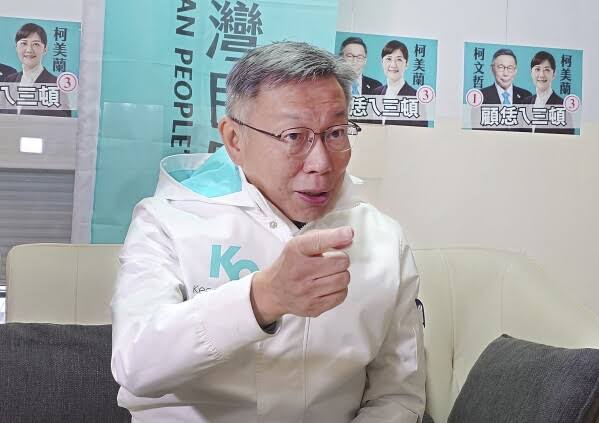NEW DELHI: Those in India monitoring party campaigns in Taiwan ahead of presidential and parliamentary elections on Saturday may see parallels with India of not so long ago. The Taiwan People’s Party (TPP) appears to be making waves among urban youth tired of the two parties that have dominated the political landscape for decades, the Democratic People’s Party (DPP) and the KMT (Kuomintang).
The TPP with its combination of fresh, clean faces and rejection of the “establishment parties” (KMT, DPP) has seen it make inroads among swing voters who make up around 30% of the electorate. In some respects, Taiwanese commentators familiar with India’s politics, say the TPP could be likened to India’s Aam Aadmi Party (AAP) which, when it burst on the political scene under Arvind Kejriwal, offered an alternative to the general run of politicians seen as corrupt, unscrupulous and self-serving.
But unlike Kejriwal, TPP leader Ko Wen-jie has a political background, having served as the mayor of Taipei city. He has not indulged in the kind of histrionics that Kejriwal became famous for when he was first elected chief minister of Delhi. But Ko is also seen as having been frank on the many challenges that confront Taiwan, such as the housing crisis for instance, or stagnating living standards which has seen more and more people identifying themselves as lower middle class.
In defence and cross-strait relations (euphemism for China), he is seen as pragmatic, converging with the DPP and KMT. An analysis on eastasiaforum.org dated January 7 noted that all three parties support raising the defence budget from 2.4% to 3%, and are agreed on increasing the period of mandatory military service from four months to one year.
The DPP says it will seek more dialogue with China while the KMT says dialogue must go hand in hand with an enhanced defence posture. The TPP says it will follow the “middle ground” here and while specifics are awaited, it’s clear the party will steer close to the mainstream.
Yet Taiwanese sources say it would not be accurate to say China is the main focus in this election campaign. While 46% of people in an opinion poll carried out in August last year said they were worried about a war with China in the next five years given pressure from Beijing and its tensions with the US, the larger concerns were elsewhere.
The eastasiaforum.org analysis mentioned underlying social and economic frustrations, post-Covid fatigue and a plurality of voters wanting a change in the governing party. The DPP with two terms under President Tsai-ing Wen is bidding for a consecutive third under current Vice-President Lai Ching-te. He is widely favoured to win and he has been leading in all opinion polls in the run up to voting day. Lai will succeed President Tsai who constitutionally cannot stand for a third term.
The TPP, while enjoying visible support, is yet to build the kind of solid following that the DPP and KMT have. In that sense, Ko may see this election as an opportunity to build his constituency and thereby enable his party to spread its wings in the years ahead.
Thirty eight years in journalism, widely travelled, history buff with a preference for Old Monk Rum. Current interest/focus spans China, Technology and Trade. Recent reads: Steven Colls Directorate S and Alexander Frater's Chasing the Monsoon. Netflix/Prime video junkie. Loves animal videos on Facebook. Reluctant tweeter.





